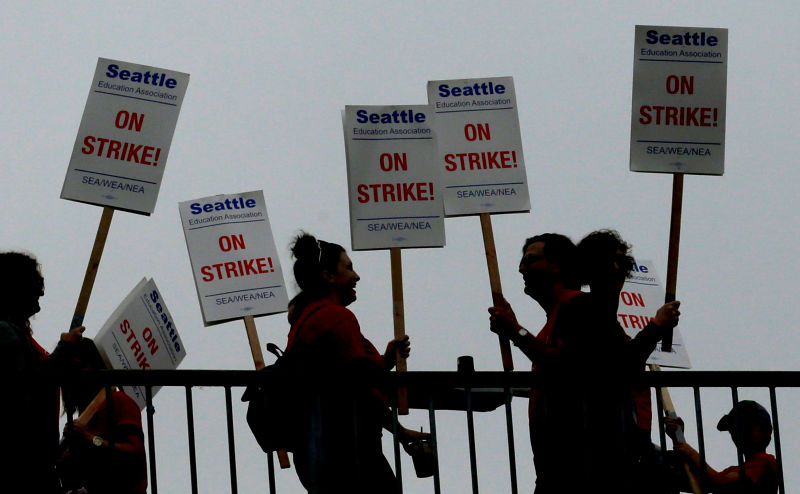-
Tips for becoming a good boxer - November 6, 2020
-
7 expert tips for making your hens night a memorable one - November 6, 2020
-
5 reasons to host your Christmas party on a cruise boat - November 6, 2020
-
What to do when you’re charged with a crime - November 6, 2020
-
Should you get one or multiple dogs? Here’s all you need to know - November 3, 2020
-
A Guide: How to Build Your Very Own Magic Mirror - February 14, 2019
-
Our Top Inspirational Baseball Stars - November 24, 2018
-
Five Tech Tools That Will Help You Turn Your Blog into a Business - November 24, 2018
-
How to Indulge on Vacation without Expanding Your Waist - November 9, 2018
-
5 Strategies for Businesses to Appeal to Today’s Increasingly Mobile-Crazed Customers - November 9, 2018
Supreme Court case could curb public unions’ power
OR is one of more than 20 states that could feel significant impacts from a U.S. Supreme Court case that seeks to strip a longstanding power of public sector labor unions to collect fees from workers who decline to join.
Advertisement
A ruling allowing non-union workers to stop paying “agency fees” equivalent to union dues, now mandatory under laws in about half the 50 states including California, could strip public sector unions of millions of dollars, reducing their income and political power. But since the union negotiates the contract that covers everyone, you are still required to pay your fair share fee, called an “agency fee”, to cover bargaining costs.
The case – Friedrichs v. California Teachers Association – will essentially determine if some teachers can defect from the CTA without having to pay state-mandated fees to their state and local unions.
Unions say the fees help cover the cost of non-political activities from which all workers benefit. The New York Times’ Supreme Court correspondent Adam Liptak reported that the a majority of the court seemed ready to agree with them in oral arguments on Monday, and a case in favor of the teachers could end up being one of the most consequential blows against organized labor in decades.
The teachers challenging the requirement say that collective bargaining is a political activity when the employer is the government and that it violates the First Amendment to make them pay for it. Moreover, states that have the compulsory fees for workers have much higher union membership in the public sector-an average of almost 50 percent-compared with states where such fees are banned (17 percent).
“It was 40 years ago”, Breyer said of the Abood decision. The teachers argue that they should not be required to pay fees to the union if they choose to not be a part of it, even though they are still represented by the union.
But Kennedy rejected the “free rider” label on Monday and told California’s lawyer that the union “is making these teachers compelled riders for issues on which they strongly disagree”.
For instance, in California some teachers pay about $650 a year for collective bargaining but not the extra $350 the union would use for lobbying and for candidates, who are nearly entirely democrat.
But Chief Justice John Roberts said even routine matters can become politically charged if they involve how the state spends money.
“It may limit their revenues somewhat, but they can compensate for that by being less involved in things like politics and tend to their knitting by representing their members in collective bargaining”, Carvin said. Though a leader of the court’s conservative wing, Scalia was considered a potential swing vote in Friedrichs, who might back the union’s position. The court in that case, Abood v. Detroit Board of Education, said the arrangement was justified to prevent non-members from becoming free riders. Her lawsuit argues that unions are inherently political and that the government can not require people to subsidize political organizations.
Advertisement
In the public sphere, he said, negotiations between unions and government could not be separated from controversial public policy questions such as merit pay for teachers or layoff policies that rely on seniority rather than teacher performance.





























